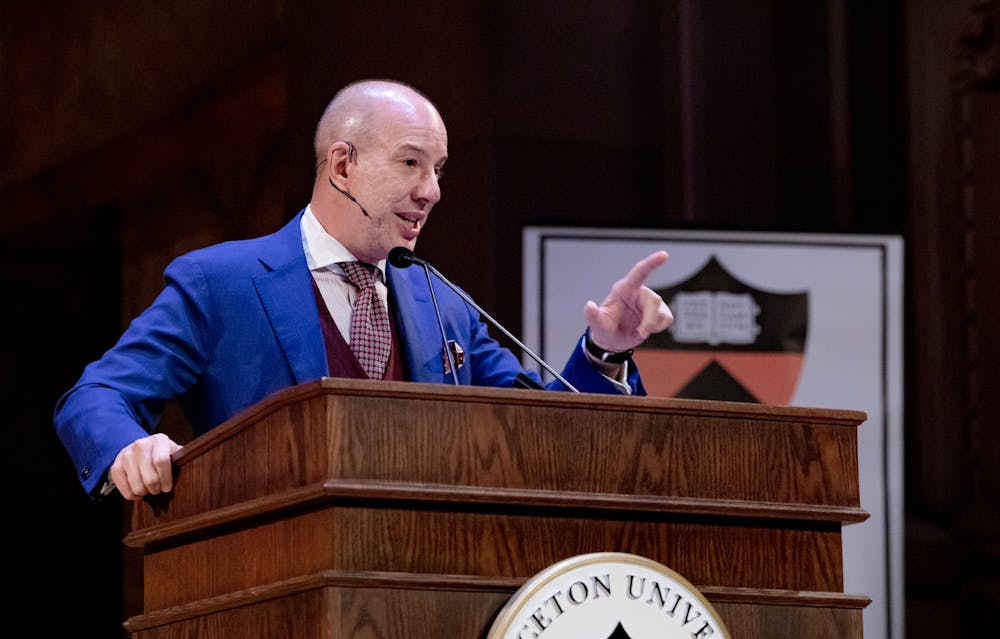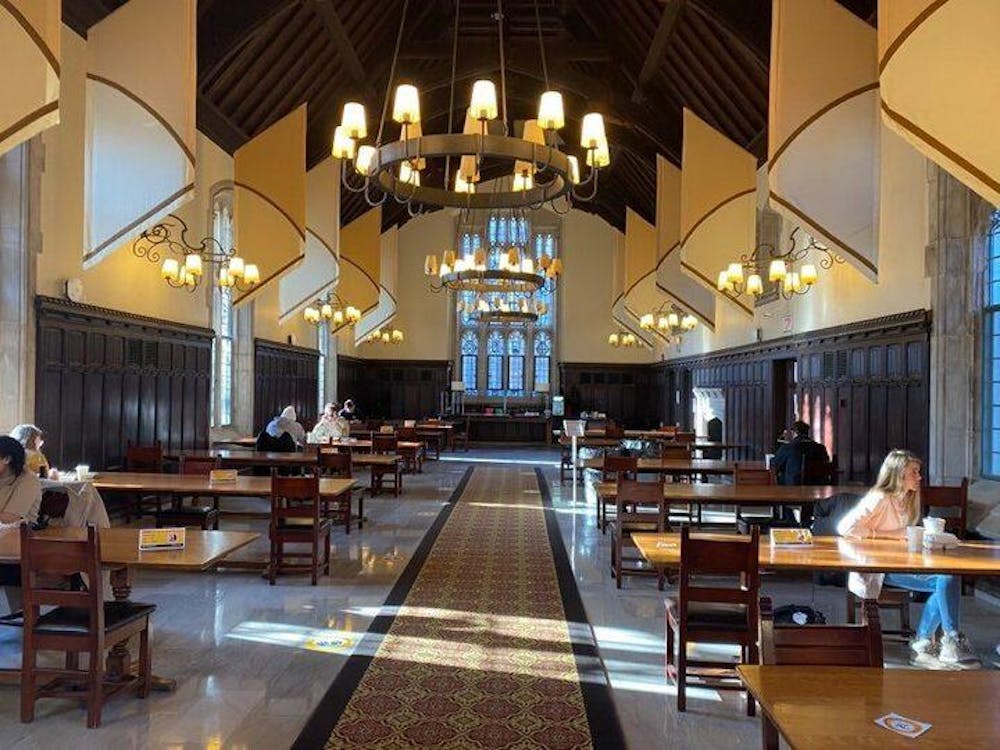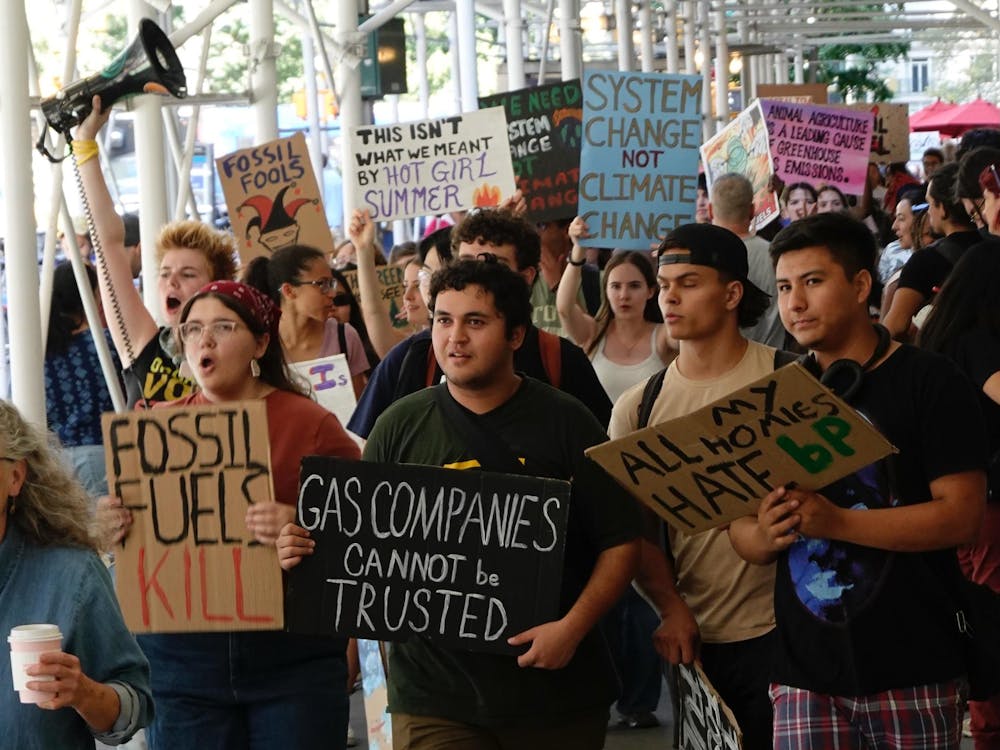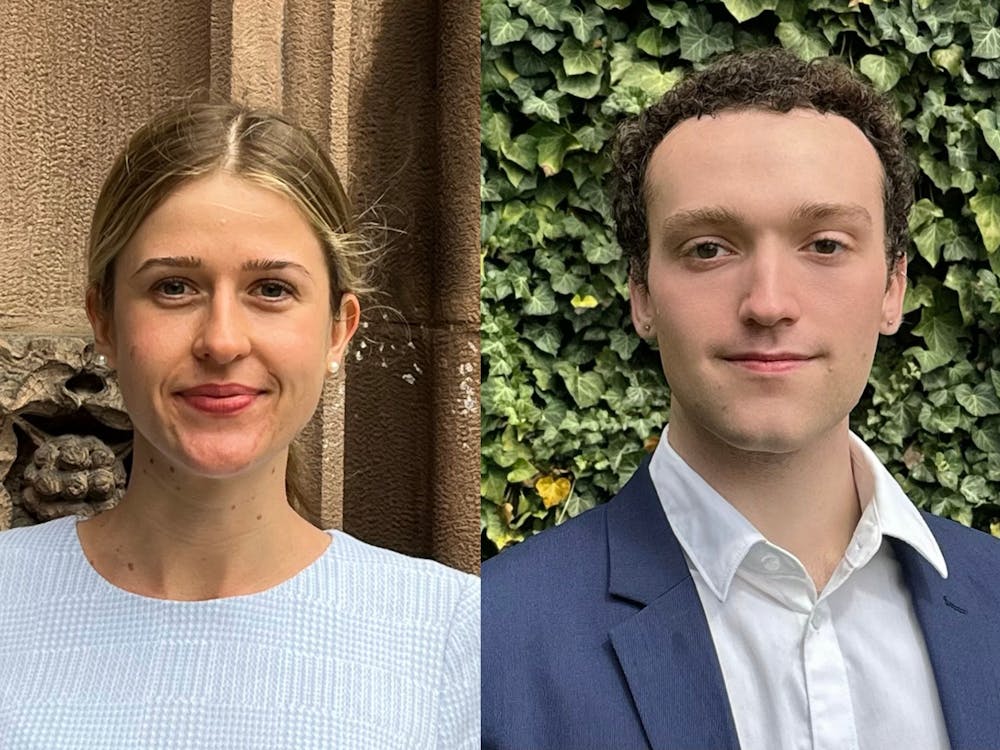At the University’s annual Alumni Day celebration, held on Saturday, Feb. 22, American Civil Liberties Union (ACLU) Executive Director and 2020 Woodrow Wilson Award winner Anthony Romero ’87 reflected on a career of service and the irony of receiving an award named after the president whose very policies the ACLU was created to oppose.
The contested legacy of former United States and University President Woodrow Wilson, Class of 1879, whom Romero described as being “equal parts racist and visionary,” continues to generate controversy on campus. Most recently, the “Double Sights” installation precipitated campus-wide debate about Wilson’s lionized role at his alma mater.
“Let’s talk about the elephant in the room, shall we?” Romero said, garnering laughter from the audience.
“There’s a good chance that Woodrow Wilson is right now spinning in his grave like an Olympic figure skater as an award in his name is bestowed on the executive director of an organization literally established to oppose a xenophobic, anti-immigrant, flagrantly unconstitutional Palmer Raids that he oversaw and engineered.”
“I accept this award with glee,” Romero continued.
The Woodrow Wilson Award is the highest honor that alumni of the undergraduate college can receive. Its recipients are chosen based on their embodiment of Wilson’s phrase-turned-informal University motto, “Princeton in the Nation’s Service.”
Romero connected Wilson’s complicated legacy with the nation’s own, but he also acknowledged the blemishes on the history of the “famously progressive” ACLU. He referenced the organization’s historic lack of female leadership and failure to fully commit to representing the thousands of Japanese-Americans unjustly incarcerated during World War II.
“Every institution, whether it’s Princeton or the ACLU, has to struggle with a legacy of bigotry and intolerance that often sits beside altruistic and high-minded goals. It’s tough to admit, but racism, homophobia, anti-Semitism, misogyny, and a host of other diseases are in our society’s DNA. So how do we cure ourselves? The answer is by fully exploring and exposing our past,” he said.
“Today, despite sincere and effective efforts to weave the diverse elements of Princeton’s student body into a vast and beautiful tapestry, there are still some, lamentably, who feel like outsiders, who feel alienated, who feel like they don’t belong. But activism and public service can change that,” Romero said.
Romero lauded the activists who brought national attention to Wilson’s legacy, specifically the Princeton Black Justice League, who occupied Nassau Hall in 2015, and the Wilson Legacy Review Committee, which curated the talk “Woodrow Wilson’s Legacy: Wrestling with History” and upon whose recommendation “Double Sights” was commissioned.
“I believe that reflecting on that past will make Princeton a stronger institution,” he continued. “I think Woodrow Wilson’s continued presence on this campus provides administrators and students with a daily reminder that we must probe those areas where we still fall short of our aspirations.”
“I like to think that if the ghost of Woodrow Wilson were ambling around this campus with this faculty and these students, he too would be transformed and humbled and changed,” Romero said.

Romero reflected on his 18-year term as ACLU Executive Director, during which membership grew exponentially — from 320,000 members at the beginning of his tenure to its current 1.9 million members.
He also discussed his path to Princeton as “a working class Puerto Rican kid from a vocational high school that didn’t send many kids to the Ivy League.”
“In those first few months, I was full of doubt,” Romero recalled. “I worried that I had only been admitted here as an affirmative action candidate. I'm sure many first-year students feel overwhelmed, but coming from my background, from my life before, this was like a foreign country whose language I barely understood.”
“I worked hard, I earned my place, and now I’m proud, in fact thrilled, to say that I was admitted through affirmative action and to stand as an example of why it works and how important it is to reach into the ranks of nontraditional students,” he said.
During the Q&A, Romero noted several important ACLU cases currently before the courts. He described cases on a range of topics spanning from LGBTQ+ rights, immigrant rights, reproductive rights, and religious liberties. Romero predicted that the outcomes of these cases could impact voter habits in the 2020 presidential election.
“You win all seven, you lose all seven, or you have a mix, four months before the national election? Could be quite a volatile moment. It could be the type of term that either motivates the base of President Trump to say ‘this is why we have to keep him in office, because look at these decisions that were wrought,’ or [it] could also serve the other way,” Romero said.
Romero entered and left the stage to a standing ovation from an audience of alumni that spanned generations.
Romero’s talk was held in Richardson Auditorium at 10 a.m.









